For many, a home is an oasis and sanctuary. However, numerous everyday mistakes are made, that can ultimately ruin a home. Here are 12 things to avoid to ensure a clean and well-working home space.
1. Be Careful with Cleaners
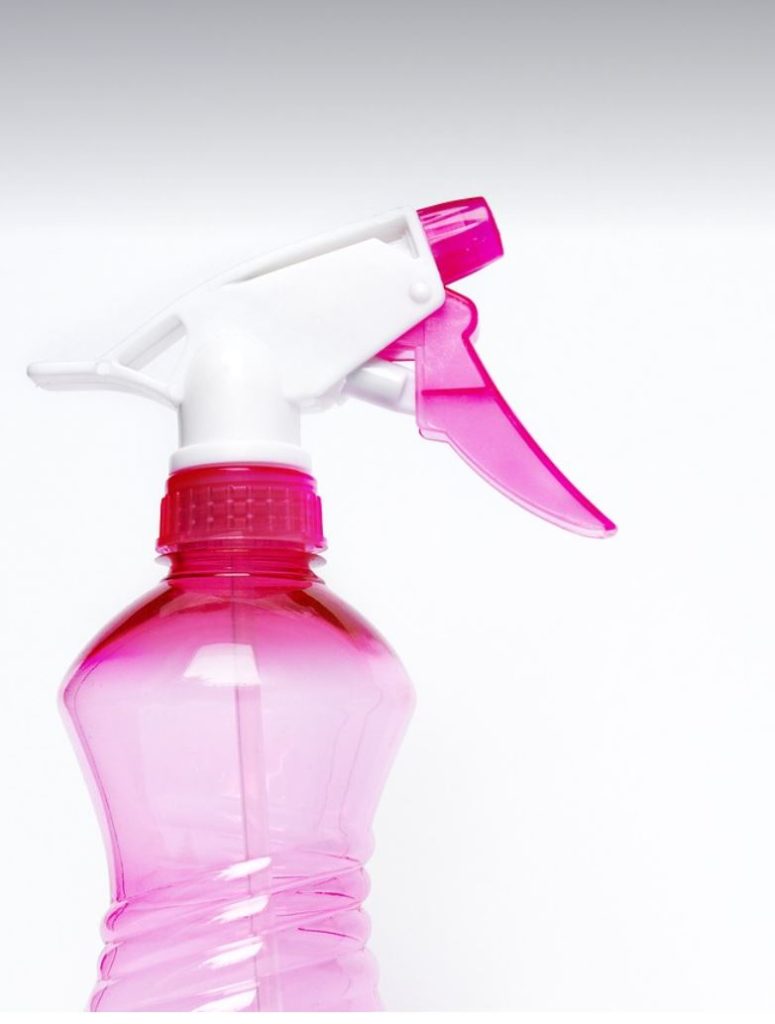
Most cleaners, even multi-surface cleaners, can cause damage to furniture and other household goods when used on an unapproved surface. For example, toilet bowl cleaners shouldn’t be used to clean the grout in tubs showers, floors, or counters. Purportedly, these cleaners contain high amounts of acids that will eventually eat away at the caulking. Instead, try a DIY solution of baking soda, hydrogen peroxide, and dish soap. Simply, create a mixture using:
- 1/2 cup baking soda
- 1/4 cup hydrogen peroxide
- 1 tbs dish soap
Let the mixture soak for a minimum of 5 minutes then use an old toothbrush, or a grout brush, to scrub away the filth.
2. Don’t Spray Directly
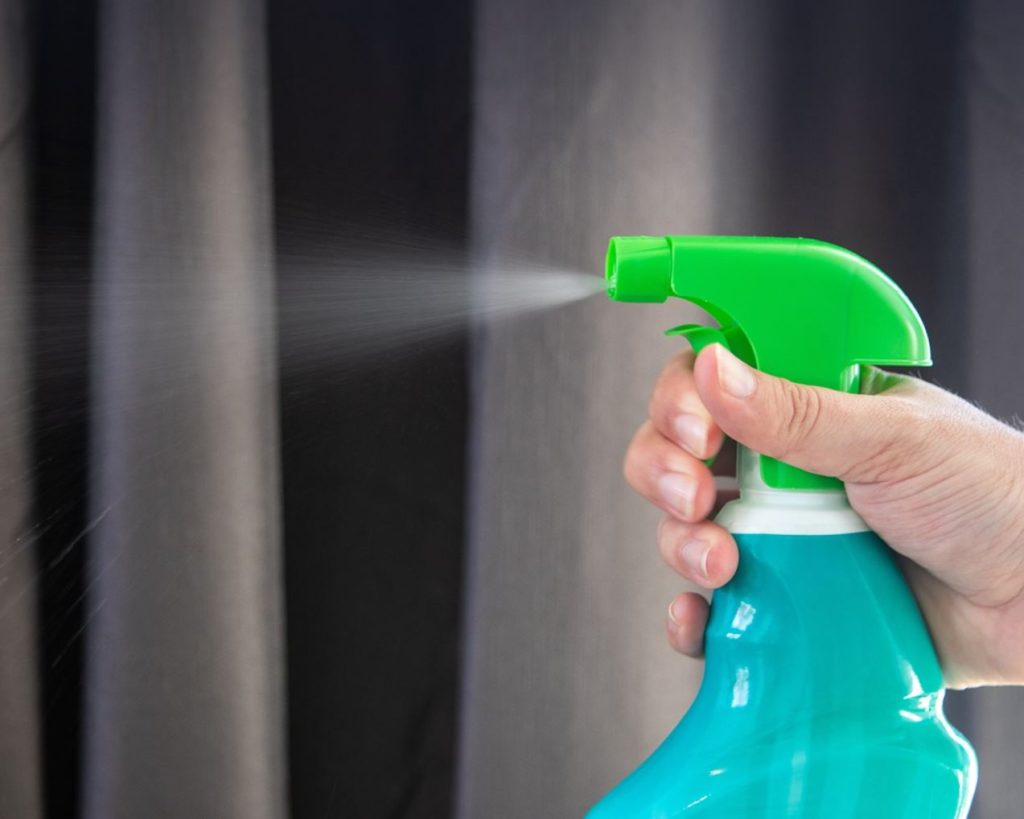
Cleaning surfaces like floors, appliances, and counters is grueling work and it’s frustrating when there’s still what appears to be grime left behind. However, it may not be grime or filth. Alternatively, it may be a film left behind by cleaners. Spray a cloth or mop directly rather than the surface to prevent leftover film or stickiness.
3. Dry Off Before Walking Around
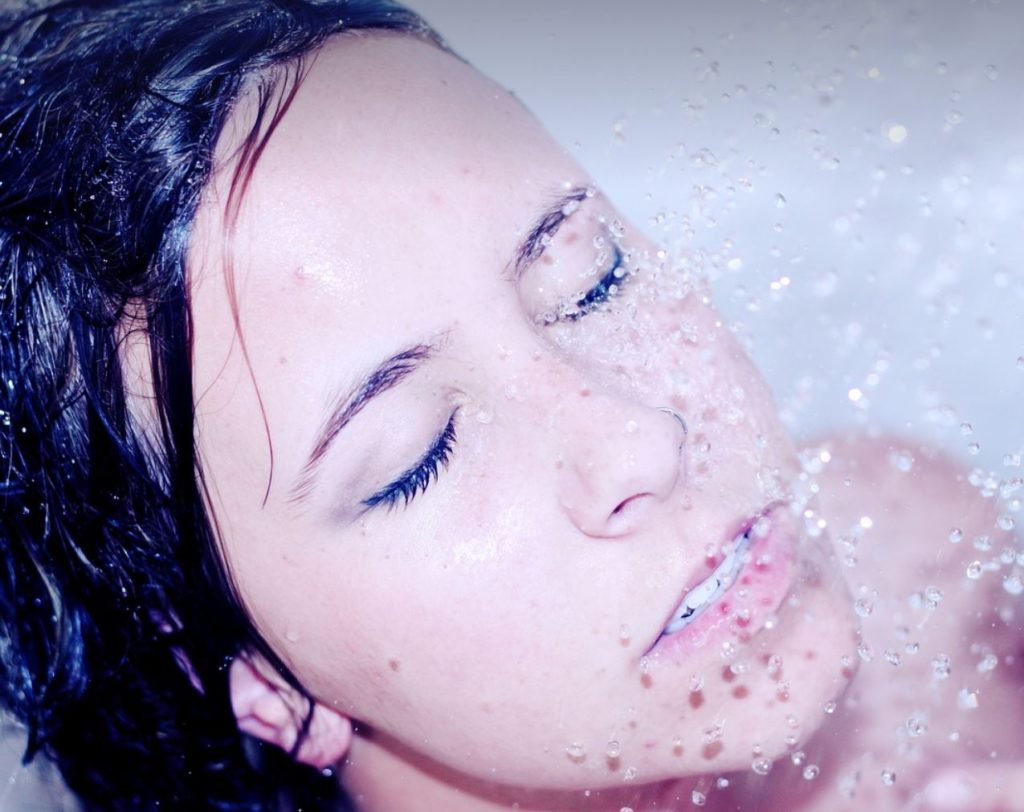
Walking around wet after a shower does more than drip germs everywhere. Over time, it can start to cause warping to the floor or seep underneath, causing mold. Instead, it’s best to fully dry off before exiting the shower or bath.
4. Moisture on Hardwood
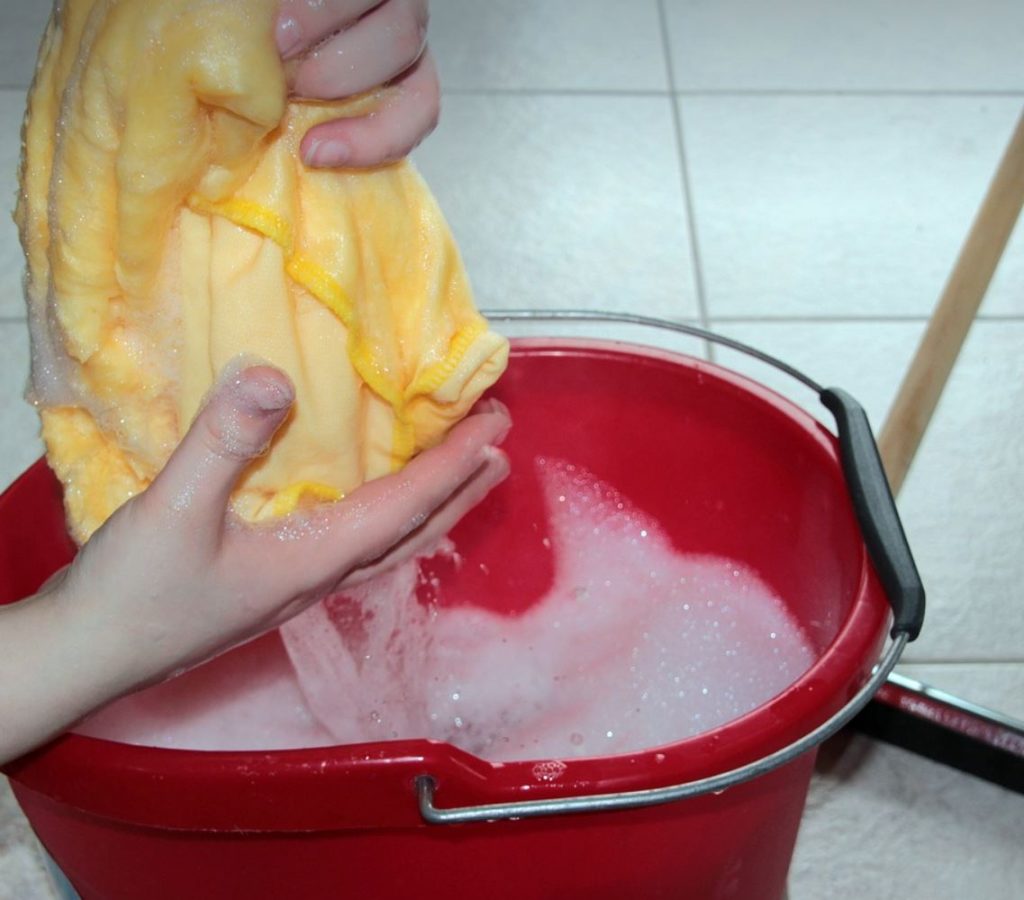
Like dripping water from a shower can damage the floor, so too, can using too much water when cleaning the floors. Particularly, hardwood floors become warped and damaged when exposed to too much water. When mopping hardwood floors try a cleaner specially formulated for hardwood floors or an oil soap and water mixture, ensuring not to saturate the floors with water.
5. Don’t Forget the Fan

Exhaust fans are in most kitchens and bathrooms and serve a useful purpose. Not only do they help freshen the air by removing pollutants, but they also help prevent mold. Exhaust fans help pull moisture out of the bathroom after a steamy bath or shower, which is great news for people in particularly wet climates.
6. Moisture in Unexpected Places
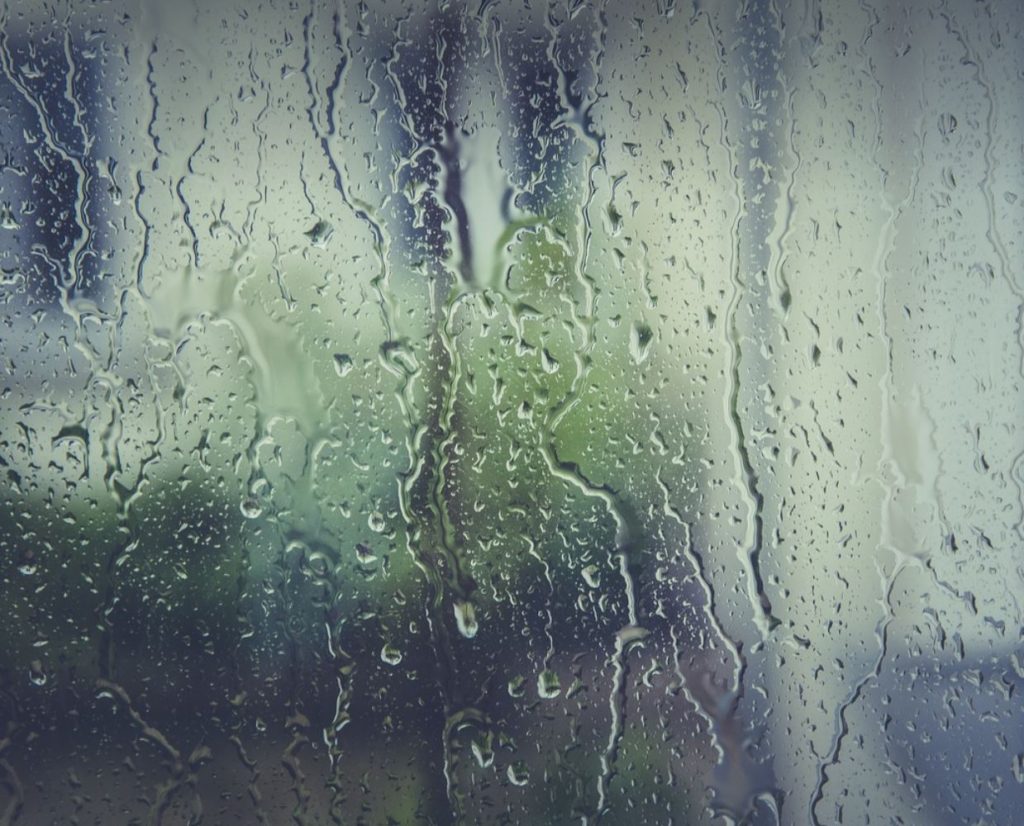
While most people know bathrooms are a great place for mold to grow because of how much water and steam is used, other places might also be harboring some pretty nasty germs. Bacteria grow in dark and damp climates, generally warm. Therefore, toilet or toothbrush holders are the perfect climates to nurture the growth of bacteria and mold. It’s a good idea to let them air dry before putting them away to minimize the growth of harmful germs and bacteria. Fabric is another place that creates an ideal environment for the growth of bacteria. Therefore, towels should be hung to dry, rather than thrown on the floor or in the hamper. And display towels, hand towels, and rugs should be washed or sanitized every few weeks to prevent bacteria buildup.
7. Be Careful with Vinegar

While Vinegar makes an excellent cleaner alternative, it can cause damage to certain appliances. For example, vinegar’s high acidity can cause damage to rubber parts in the dishwasher. Another example of when vinegar isn’t an ideal cleaning solution is when it’s used on granite countertops as this can remove the sealant.
8. Most People Make the Bed Too Soon
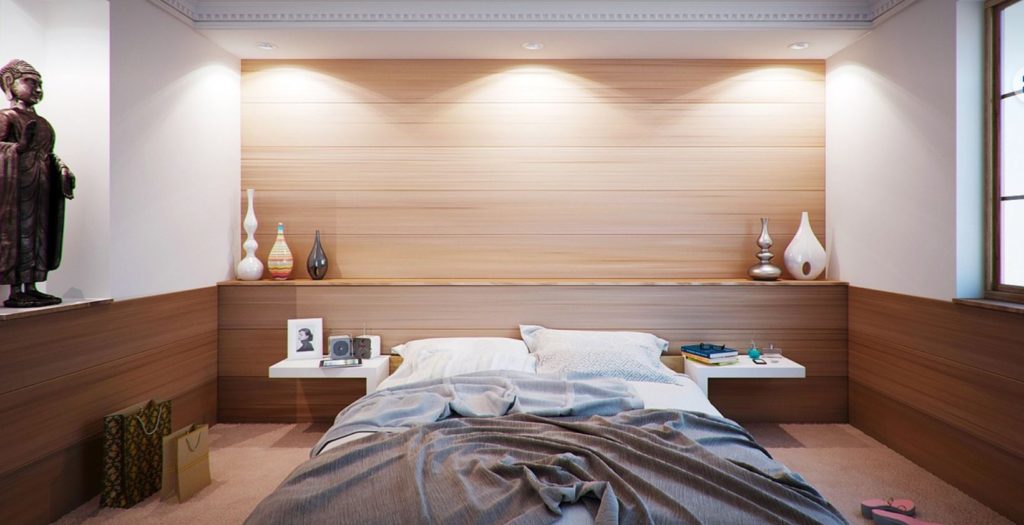
Although making the bed every morning is a good practice, it’s important to wait a little while. Allowing the bed some time to air out before it’s made will minimize odor-causing bacteria and sweat buildup that ultimately nurtures the growth of bacteria.
9. Using a Sponge
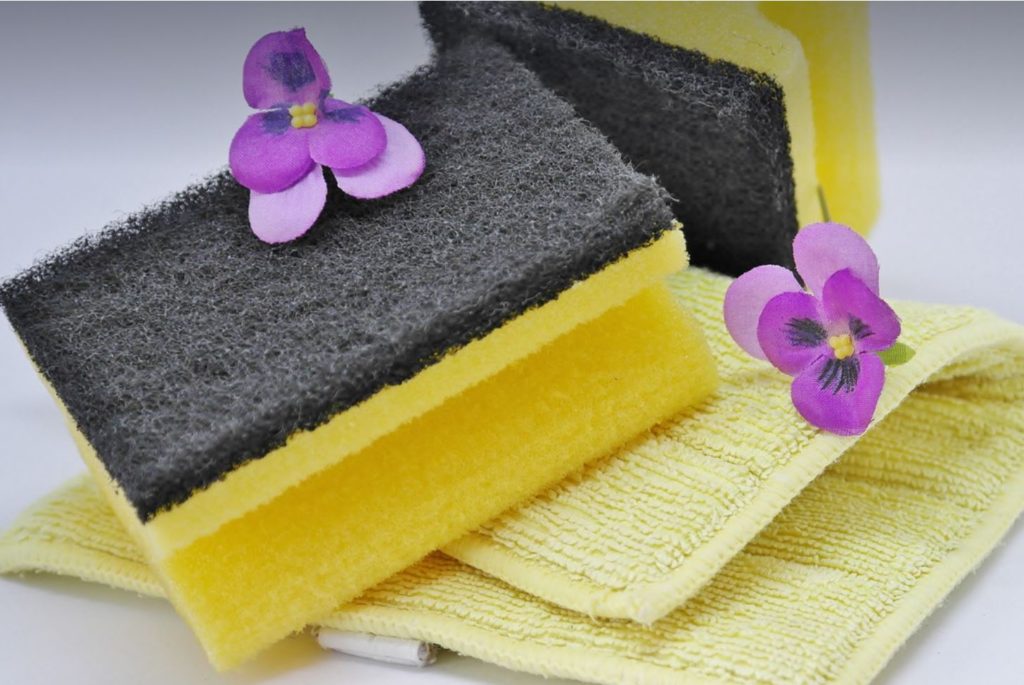
Foods like meat and produce harbor countless harmful bacteria that can be transferred from surface to surface, including dish towels and sponges. Therefore, using hydrogen peroxide on cutting boards is a more effective method of killing germs, and won’t contaminate other parts of the kitchen including sponges.
10. Protect Your Home from the Sun

The sun has an undeniable superpower, nurturing our bodies and souls. However, it’s also incredibly dangerous. Which is why doctors recommend using sunscreen. But the Sun’s rays can also cause damage to furniture. Therefore, it’s a good idea to close the curtains and blinds when leaving the house to protect furniture from too much Sun exposure.
11. Sweeping Instead of Vaccuming
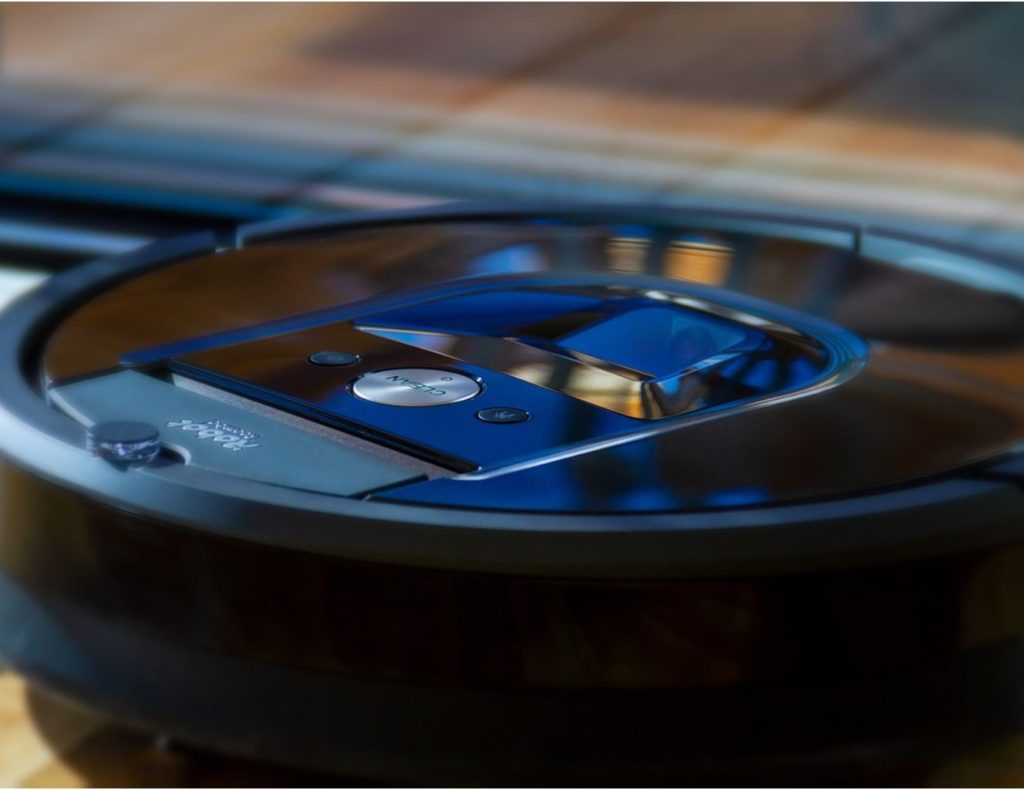
Sweeping with a broom does help to get some dust and pet hair off the floor. However, sweeping, and then emptying a dustpan often spreads more dust around. Instead, a vacuum will suck up dirt and dust, even on hard floors.